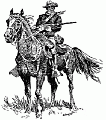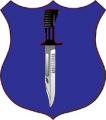As a continuation of the Weinberger and Powell doctrines renewal of the conventional war dedication, one section of the essay will deal with how the belief in Decisive Force is self defeating. It will concentrate upon several distinct areas; technology, denial and self validation. In regard to technology the section will look at how such developments do not help the fighting of small wars. To do this it will look at a number of different authors arguments on the subject as well as drawing conclusions from previously successful irregular wars. Part of this will also look at the arguments for and against the relevancy of the current (disputed) revolution in military affairs (RMA), many critiques of which will prove useful not only for this section, but for the dissertation as a whole. The idea of self validation will look at how the first Gulf War ‘proved’ the relevancy of conventional warfare to the military leadership and is related to the previous assessment because the first Gulf War was enabled by technological superiority and is given by many as the evidence for the existence of the current RMA. This section will illustrate how the success of the Gulf War paradoxically weakened American military power and also how it relates to the military’s forgetfulness in regard to irregular war: President George H.W. Bush’s speech in which he claimed that America had finally got over the Vietnam Syndrome is the centrepiece for this argument and is a grand instance of denial.
The final section of my dissertation will be a discussion of the changes that are taking place within the American military, such as the ‘Modular Force’ concept, and their, and its, relevancy. This section will, like so many others, be intentionally brief so as to not dominate the piece, but must be included if my essay is to be an accurate account. It will feature a summary of the proposed changes and their foreseen effects, with particular reference to the culture of individual units of the Army and how this culture will be altered with the implementation of these changes. The marine corps shall serve as the personification of this change because of their developed unit culture and individual lexicon.
particular focus is upon the vietnam syndrome and the conventional warfighting stance of the U.S.
for those that have spent the time reading this and helping me out, i thank you from the bottom of my heart.
Xander




 ) -- the two are not at all synonymous. I do not disagree at all with your preferred paradigm statement but I do think the Viet Nam syndrome and bodybag effect can be and are overdone. The One Third Rule applies. I also believe that if you talk to the British Army today, they will not concur that the US army today (as opposed to five years ago) is either unprofessional or inexperienced with regard to small wars.
) -- the two are not at all synonymous. I do not disagree at all with your preferred paradigm statement but I do think the Viet Nam syndrome and bodybag effect can be and are overdone. The One Third Rule applies. I also believe that if you talk to the British Army today, they will not concur that the US army today (as opposed to five years ago) is either unprofessional or inexperienced with regard to small wars.






 I do suspect that the UK libraries will have the journals. In the US, I am sure that the libraries of the military graduate schools have these journals - CARL at CGSC (Leavenworth), the AWC, the NDU library. All work with interlibrary loan. Indeed, that is probably the best way to go (but you may have to tell your librarians where to look.
I do suspect that the UK libraries will have the journals. In the US, I am sure that the libraries of the military graduate schools have these journals - CARL at CGSC (Leavenworth), the AWC, the NDU library. All work with interlibrary loan. Indeed, that is probably the best way to go (but you may have to tell your librarians where to look.

Bookmarks